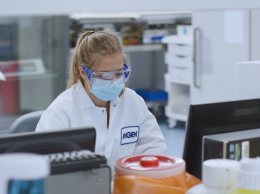
Henry Dubroff
When the Business Times broke the story that Amgen was cutting roughly 500 support and operations jobs at its sprawling Thousand Oaks campus, there were gasps — and sighs of relief.
Gasps because the world’s largest biotechnology company is the economic engine for the Conejo Valley, East Ventura County and, for that matter, a big chunk of the West San Fernando Valley. When Amgen sneezes, communities all around catch a cold.
Sighs of relief because the core of Amgen’s commitment to the region remained intact. It will still have roughly 5,000 employees, mainly scientists and technicians who are highly compensated, and its C-suite executives in Thousand Oaks.
By maintaining its 5,000 jobs threshold and keeping the top brass in the region, government and civic leaders can claim that the status quo is not changed.
But I’d argue that over the long term, business as usual can’t continue for Amgen and East Ventura County. Government demands for lower cost drugs, underscored by the Trump administration’s new FDA chief, and innovation in manufacturing automation will mean fewer jobs in large pharmaceutical facilities.
The eventual approval of biosimilars and generic versions of drugs that have helped drive Amgen’s market capitalization to more than $120 billion will drive down costs.
Though Amgen has succeeded in putting off the day of reckoning through lobbying to extend biosimilar patents, that day eventually will arrive.
Finally, there’s a change in how innovation takes place in biotechnology — away from large centralized facilities in Thousand Oaks and Princeton, N.J., to smaller labs closer to universities.
The challenge for East Ventura County and the broader Highway 101 corridor is to create a biotech innovation cluster like our rivals in the Bay Area and the Boston suburbs.
A few stalwarts, including attorney Brent Reinke and veteran Chief Financial Officer Wayne Davey, have been working on a bioscience alliance for years, with some promising results.
There have been a few spinout firms from Amgen, notably Kythera Pharmaceuticals, now part of Allergan, whose treatments to reduce double chins have become a mini-blockbuster. But Kythera, while launched in the Conejo Valley, moved out shortly after its acquisition.
In making its job cuts in Thousand Oaks, Amgen also signaled it would be opening a new center in the Tampa, Fla. area, a place where labor and other costs will be much lower over time and where it can fulfill part of its commitment to creating 1,600 new jobs while improving its bottom line.
We’ve seen over the years that the Central Coast can’t compete with Texas, Tennessee or Florida for operations management and data processing positions in financial services, health care and even restaurant operations.
That’s why it may take creative thinking and perhaps a summit of top political, business and civic leaders to ponder life in an Amgen 2.0 or 3.0 world. That is a world where Amgen’s smart executives are able to remain a step ahead of hedge funds and hostile takeovers, retaining a headquarters and a footprint in Thousand Oaks but expanding elsewhere.
That future might include finding new Ventura County locations for innovation centers — the sprawling, empty Farmers headquarters in Simi Valley comes to mind. Or developing new university/industry partnerships to bring more spinout companies from Los Angeles to Ventura County.
When Amgen was formed in Newbury Park decades ago, nobody would have predicted it would become the pharma giant that it is today. Its growth in the mid to late 1990s was astounding and it put the region on the map as an emerging biotech center.
But assuming that Amgen will have the same footprint and the same economic impact in the future that it has today is taking the status quo for granted. It might be smarter to match Amgen’s strategic moves with a public-private effort to create a biotech cluster that’s less dependent on one giant firm.
• Reach Editor Henry Dubroff at hdubroff@pacbiztimes.com.






 Print
Print Email
Email

















